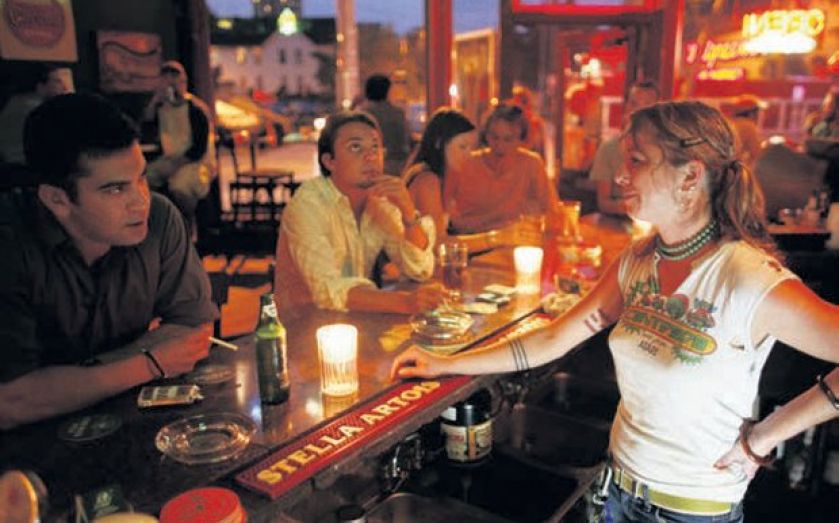Pub chain shares battered after MP vote to end beer tie: Enterprise Inns, Punch Taverns suffer

Shares in pub chains plummeted after MPs voted to let landlords buy their beer on the open market, as investors heeded industry warnings that the legislation would have a "hugely damaging" effect.
Enterprise Inns led the fall, losing 15.3 per cent in mid-morning trade. Punch Taverns also shed 12. 5 per cent. Shares in Marston's and Mitchells & Butlers were down 3.14 per cent and 1.8 per cent respectively. JD Wethersoon was flat.
Last night MPs voted 284 to 269 to remove the obligation for around 13,000 UK landlords to buy their beer from the company which controls the pub. This means tied pubs will no longer have to buy supplies solely from their parent companies, amid complaints of high prices.
Industry insiders have said they expect this to have a disastrous effect on the pub sector.
Brigid Simmonds, chief executive of the British Beer & Pub Association, said in a statement:
This change effectively breaks the 'beer tie', which has served Britain's unique pub industry well nearly 400 years. It would hugely damage investment, jobs, and result in 1,400 more pubs closing, with 7,000 job losses – as the Government's own research shows.
There are serious legal and competition issues which must be faced, as it rides rougshod over what are previously agreed contracts, and creates an unworkable, two-tier market.
I hope Parliament will rethink as the bill continues its progress.
Others believe that it will provide a life line for small pubs whilst cutting prices for consumers. Tim Page, chief executive of Campaign for Real Ale, said in a statement:
Allowing over 13,000 pub tenants tied to the large pub companies the option of buying beer on the open market at competitive prices will help keep pubs open and ensure the cost of a pint to consumers remains affordable. The large pub companies will no longer be able to charge their tenants prices up to 60 pence a pint higher than open market prices
Those affected will now wait to see if the decision is passes a second vote in the House of Lords. However, the changes will not come in for at least two years under the proposals put forward.